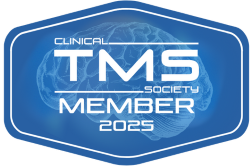
One of the biggest challenges with mental health is knowing when to seek help. Some days, you might feel fine, but on others, it can feel like something’s just not right. The uncertainty may leave you questioning whether what you’re going through is serious enough to need help.
The golden rule is if you’ve wondered whether psychiatric treatment is right for you, chances are, it is. The truth is, psychiatric treatment is about improving your mental health.
Mental health diagnoses, like depression or anxiety, take away so much from your life. They affect your emotions, sleep, energy, how you connect with others, etc. So, if you even suspect that your mental health is affecting your life, it’s worth considering treatment. Psychiatric care can help you feel better and regain control, no matter where you are in your journey.
Remember, seeking help isn’t a sign of weakness—it’s a step toward healing. In the following sections, we’ll discuss what to expect from psychiatric treatment, how diagnoses are made, and what treatment options could work best for you.
What is Psychiatric Treatment?
Psychiatric treatment focuses on the prevention, diagnosis, and treatment of emotional, behavioral and mental disorders. You may seek psychiatric care for a range of reasons, including sudden issues like:
- Frightening hallucinations
- Panic attacks
- Hearing “voices”
- Thoughts of suicide
Or they may be long-term, like:
- Anxiousness
- Hopelessness
- Feelings of sadness
Psychiatric treatment is probably right for you if:
- You’ve been struggling with symptoms of depression, anxiety, or other mental health issues for weeks or months. If nothing seems to improve, it’s worth considering psychiatric care.
- Your symptoms affect your ability to work, socialize, or care for yourself.
- You’re feeling overwhelmed by emotions and unable to manage them on your own.
- Therapy hasn’t been enough to help you feel better; medication may be the next step to make progress.
What to Expect from Psychiatric Treatment
Your medical doctor or psychiatrist will first do an evaluation, asking about your symptoms, medical history, and any challenges you’re currently facing. This will help paint a picture of your physical and mental state and allow them to create a treatment plan that’s a good fit for you.
During this process, the psychiatric provider may ask questions about your mood, behavior, and thoughts and how these impact your daily life. You want to be open and honest during this conversation, as it helps ensure you get the best treatment.
Once your provider has a clear picture of what you’re dealing with, they may recommend a combination of therapy and medication. Psychiatric treatment is mostly about finding the right balance between both so you have the tools you need to feel better. Medications can help stabilize mood, reduce anxiety, or manage other symptoms. In many cases, these medications work hand-in-hand with therapy, which enables you to address the root causes of your struggles and develop healthy coping strategies.

How Diagnoses Are Made
Diagnosing mental health conditions involves understanding both your symptoms and your overall well-being. A psychiatrist will assess your mental health based on criteria outlined in resources like the Diagnostic and Statistical Manual of Mental Disorders (DSM-5), which provides guidelines for identifying mental health conditions.
It’s important to remember that diagnosing mental health conditions isn’t about labeling you—it’s about understanding what’s happening in your brain and your life. Common conditions that might be diagnosed include depression, anxiety disorders, substance use disorder, and mood disorders. A mental health diagnosis is the first step toward getting the right treatment.
Sometimes, other underlying conditions or life situations, such as stress, trauma, or substance use, can affect your mental health. That’s why a psychiatrist thoroughly examines your history and lifestyle to make an informed diagnosis.
What Treatment Options Do Psychiatrists Use?
Once a diagnosis is made, your psychiatrist will discuss various treatment options. These can include:
Medications
Your psychiatrist may prescribe medication to help manage the symptoms of your diagnosis. This might include antidepressants for depression, anxiolytics for anxiety, or mood stabilizers for bipolar disorder. These medications regulate brain chemistry, improving emotional balance and overall quality of life. The goal is to find the right treatment while ensuring you feel comfortable every step of the way.
Talk Therapy
While medication helps manage symptoms, therapy helps address the deeper issues that might be causing them. Cognitive behavioral therapy is an effective form of therapy. It enables you to understand how your thoughts affect your emotions and behaviors and teaches you ways to change negative patterns.
Therapy sessions allow you to discuss feelings in a safe, supportive space. For some, talk therapy alone can be enough to start feeling better. However, combining it with medication often results in a more comprehensive effective treatment approach.

Transcranial Magnetic Stimulation (TMS)
If traditional treatments haven’t worked, your psychiatrist might suggest TMS. It’s a non-invasive treatment that uses magnetic pulses to stimulate the parts of your brain that affect mood. TMS is FDA-approved and has helped many people manage symptoms of depression, anxiety, and OCD when other treatments didn’t provide relief.
SPRAVATO®
Another option for depression treatment if medications and therapy aren’t enough is SPRAVATO®, the only FDA-approved form of ketamine for mental health treatment. It is a nasal spray self-administered in a clinic under the supervision of licensed medical professionals and is known for providing rapid relief.
Ketamine Infusions
While not FDA-approved for mental health treatment, and therefore not covered by insurance, IV ketamine can be a great option for individuals struggling with bipolar depression, treatment-resistant anxiety, and PTSD, among other diagnoses. It’s typically a six-infusion treatment over the course of 2-3 weeks, with booster sessions as needed. Like SPRAVATO®, IV ketamine can provide fast relief.
Support Groups
In addition to individual therapy and other treatments, joining a support group can be beneficial. Support groups allow you to connect with people who have experienced what you’re going through. They are a safe space to share your experiences and learn from others.
Mental Health Services at Relief Mental Health
The first step toward seeking psychiatric treatment is often the hardest, but it’s also the most powerful. It shows courage and a desire for change, even when it feels uncertain, and is the key to unlocking a better, healthier version of yourself.
At Relief Mental Health, we are here to support you on your journey. Our experienced team is ready to guide you through your treatment options and create a plan personalized to your evolving needs. If you’re ready to take the next step in your mental health journey, we invite you to contact us today. You don’t have to face it alone. Let us help you find the relief you deserve.

